The medieval murderers, or what is actually the tale about little Red riding Hood?
Categories: Culture | History | World
By Pictolic https://pictolic.com/article/the-medieval-murderers-or-what-is-actually-the-tale-about-little-red-riding-hood.htmlFolklore has always been giperplazirovannom a reflection of the reality in which they lived carriers. The story of the Wolf and little red riding hood was no exception. In the era of the first serial killers, otozhdestvlyavshey with werewolves, one of them was the main antagonist of the story.
The gray Wolf in the original version is a killer and cannibal, as Gilles Garnier. Not accidental was the image of the heroine — that girl at the bottom of society and children was the most easy and favored victims of serial killers.

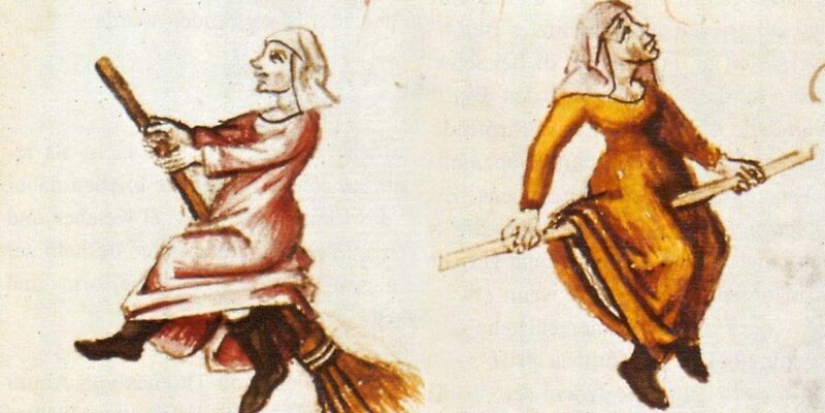
Early Christian theorists denied the possibility of the existence of hell. Even Augustine, who lived in the second half of IV — first half of V century, in his treatise "city Of God" said: the power to give people supernatural abilities and qualities only God possesses.
The devil has only the art of lying — he could put little faith fools noodles on the ears, making them believe in their magical abilities. Simply put, this initial lohotronschikov, not more.
780 years of Charles the Great issued a decree abolishing the old remnants, among which was the belief in witches. The Emperor ruled that the woman in the dark woods does not conjure, and in General — it's already five minutes to the IX century after Christ, and live as if under Attila. Now burning witches was considered a criminal offense, equal — horror of horrors — the murder of any other person.
The new Millennium was caused by the old remnants of another blow. Now the Church decided that the belief in witches, werewolves, and demons is not just a stupid archaic misconception, but it is a heresy, for the passion which its ogresti from the Holy fathers.
Why? It's simple: to change the essence of people in a better or worse power only God, the endowment of this ability other entity could be regarded as idolatry.
No, definitively to get rid of burning witches and wizards still failed. Another thing is that now their case was seen as typical criminal offences of mere mortals who, not having any abilities, succumbed to the devil's instigation and began to create different lewdness.
Paul of Aegina, a Greek author of the VII century, called lycanthropia acute manifestation of melancholy, and as the symptoms pointed look pale, unconscious wandering at night and the abundance of wounds on his feet — the result of multiple micro traumas and falls that are received in an unconscious state.
It got to the point that at the time of the classic middle Ages, the werewolf turned into a positive character in the art — for example, the ability to make a wolf endowed the knights-errant of various literary works, stressed the tragic fate of these people.
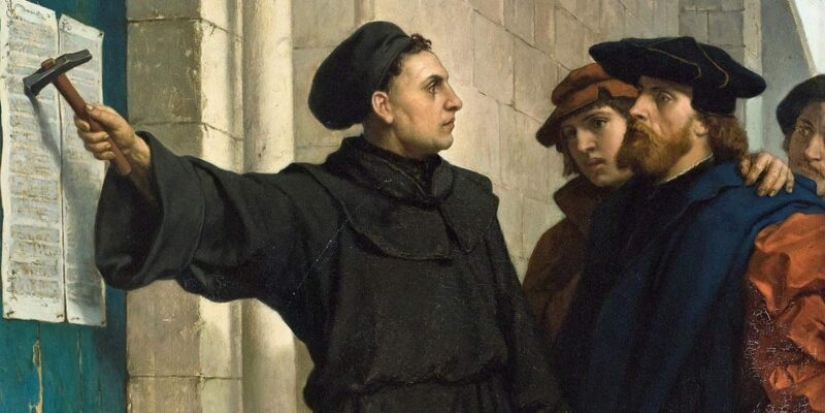
But centuries later, all of a sudden slid into the trash and bloody frenzy.
Why? How funny would it may sound, the culprit is a relative Renaissance of liberalization, free-thinking and technical progress. Italian artists painted Nude women educationists in the universities have deconstructed the ecclesiastical writers of the past, and every lousy dog now had their own opinion on world order.
The freer was the mores — the big doubts were subjected to the authority of the Church. Multiplied like mushrooms after the rain, different religious schism. But until then it was only half the problem. And then Johannes Gutenberg in the mid-XV created the printing press — and raced!
The appearance of this mediaevally — never before knowledge not spread so quickly and massively. And with that knowledge was spread around the world and heresy. This was the catalyst for long-simmering crisis of the Church, and in October 1517 boomed heartily. University Professor of theology Martin Luther published his 95 theses — printed just in time for "gutenbergova" the machine — and started the reformation.
Under this deal immediately remembered about the witches and the werewolves, who almost in an instant has ceased to be something mythical and unreal, and acquired in the mass consciousness of flesh and strength.
In the winter of 1484, the Pope issued a bull, in which he urged all good Christians to forget about the differences and selfish interests, and unite with the Church demonologists and inquisitors in the fight against Satan and his forces — witches, warlocks, werewolves and other evil spirits.
And two years later the Inquisitor of the Dominican order by the name of Heinrich Kramer, who is also Institor, released a scathing work under the title Malleus Maleficarum — "Hammer of witches".

If the Church theologians of previous generations denied the reality of the supernatural, Kramer questioned the reality of reality itself. Any element of reality now could be the satanic no end of trouble. The forces of evil swarmed somewhere nearby and just waited for the moment to Express itself.
Werewolves again ate human flesh, witches flew on brooms and curse. And Kramer seriously argued that woman are inherently more prone to witchcraft than a man. Well, in those days it was not feminists — they would have burned it first.
Respectable burghers, the nobility, and many of the clergy from such an abundance of mutually exclusive paragraphs "tore" apart. It got to the point that some parishes or secular authorities of certain regions sabotaged the hunt for witches and werewolves, strongly interfering with Inquisition work. The argument invariably referred to the same Augustine and other theologians of the time, when the world has not gone mad.
However, it was not everywhere. In addition, the reformation has only exacerbated the problem of radical Protestants sometimes suit such a gesture, which contorted the most active Inquisitor.
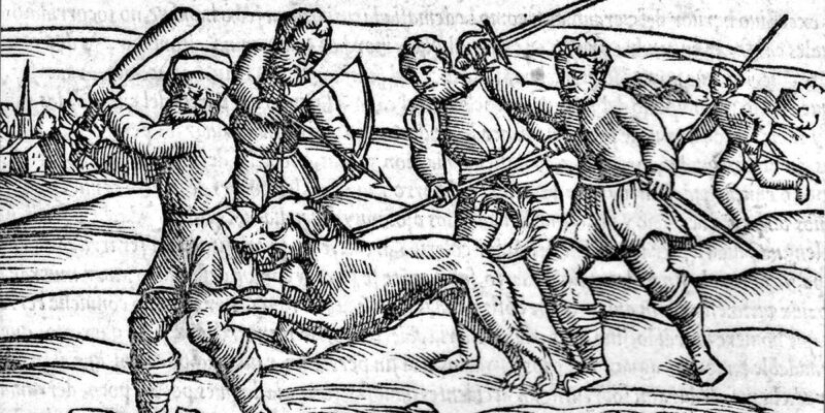
And in the Renaissance and Middle ages in Europe there was no structure which we could associate with the police. Most of the crimes are not something that is not revealed — not even recorded.
When had a case of brutal murder, especially if it was about babies, as a rule, all felled beasts. This usually happened in the province, so that in addition to the local community, nobody cared.
But at the end of the XV century, everything changed on the wave of hysteria devoloperskaya the Church began to demand from regional judges and parishes to approach such cases with great care. Hellish creatures become full-fledged subjects of law.
Eugene Basin-Razumovskaya Expert on historical issues:
"Of course, themselves serial killers existed before. However, they usually fall out of the focus of the story — partly because of the paucity of base extant sources, partly due to the imperfection in the then system of justice.
So for all its horrendous crimes, the era of the "great witch hunt" was first introduced humanity to the phenomenon of serial murder. However, no sane criminology and the regular police service again soon "buried" this kind of crime, which was again "opened" only in the industrial era".
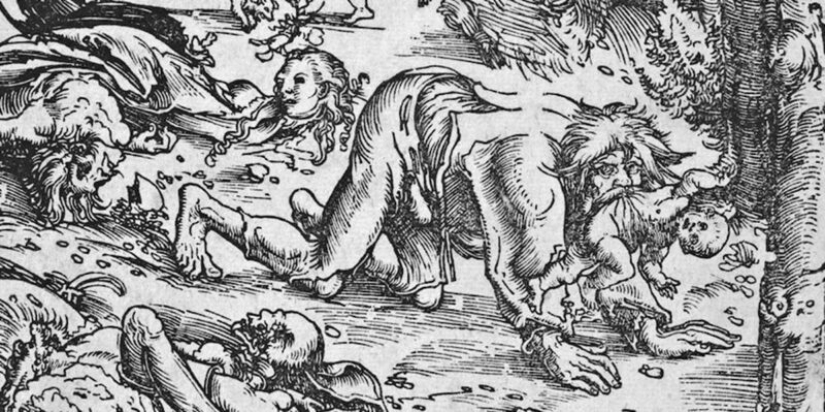
During this hunt began grabbing everyone who has discovered some strange behavior that can not be clearly interpreted from the standpoint of contemporary medicine. To put it simply, lunatics, crazy, suspicious, vagrants, and other interesting personalities. And what is interesting.
In this stream of homeless people and rural fools no-no and began to ascend the examples of pure, distilled evil — absolutely real, not magical.
For example, in 1521, in France, was captured some Burgo Pierre and Michelle Verdon whom rumor dubbed the "Werewolves of Poligny". Actually swept them for such an abomination as infanticide and cannibalism. Scum was operating in a rural location, where you easily sneaked into the garden of a local family and stole a four year old girl, collecting the peas.
Burgo and Verdun killed the child, then used body parts as food. They have committed several similar attacks — the victims were a total of four girls of different ages.
Both under torture "confessed" that he had made a Pact with the devil that gave them superhuman powers. Currently it is not possible to recover every detail, but far more real that Verdun and Burgo was wandering beggars, which at such atrocities pushed not the devil, and banal hunger, greed and cruelty.
Than further in wood — the thicker the wolves. In 1574 in France caught another "werewolf." A certain Gilles Garnier confessed to committing multiple murders:
"The day of Saint Michael, taking the guise of a werewolf kidnapped a girl ten to twelve years (...) and there killed her, for the most part with hands similar to the paws and teeth, and ate the flesh from her thighs and arms, and some parts took my wife.
And fifteen days later, strangled a small child at the age of ten years on a vineyard in Predisone (...). And from that time was killed, being in human form, not wolf, another boy at the age of twelve or thirteen years in the forest near the village pérouse (...)".
He was sentenced to be burned alive, and the sentence was carried out.

Judging by the extant information, Garnier "courage" at least two years, from 1572 to 1574-d, — bringing terror to the Franche-comté region. The exact or even the approximate number of its victims is impossible to determine. But one question remains: why all of Garnier crimes committed allegedly in the guise of a wolf, and only the last, during which it got created in its natural form?
The answer is obvious: the medieval mind could not find a rational explanation for such atrocities, so they said it was a contract with Satan.
Most likely, Garnier and others like him during interrogation, forced to confess that they are werewolves. And when, during the arrest red-handed, fangs and tail the villain is not revealed, judges and clergy simply explained by the fact that this time the criminal decided to kill, not turning into a wolf.
Werewolves have become a subject of fierce debate in the religious and medical circles throughout Europe. Ahead loomed the seventeenth century, and many of the tenets of "Malleus Maleficarum" Kramer and previously adopted, but not all, no longer seemed so compelling. Pundits returned to the thesis that the so-called lycanthropy may be a manifestation of a mental disorder.
In this respect, notable was the case of Jacques Roulet, or Roll — tridtsatipjatiletnego French in 1598, caught at the crime scene near Angers. According to the Protocol, was detained when he stood over the murdered body of them a teenager. The killer that caused multiple injuries, and the hands of a criminal was literally stained with blood.
During the interrogation, the driver confessed that he was a werewolf and the devil gave him a magic ointment, rubbing that in your own skin, the offender allegedly gained the ability to shift into a wolf. He also confessed to the murder of several children and adults.
However, in this case the local investigation has denied the mystical underpinnings of the crime. Moreover, the judge ruled that the Handlebars thus tried to make yourself look crazy and to abdicate responsibility for their actions. Surprisingly rational thought!
Judge how the water looked: not wanting to put up with quite a fair death sentence, Handlebar appealed to the Parliament of Paris, continuing to insist that he's a werewolf. Heads, which, in his opinion, always better than the provincial fools in the field, reviewed the petition and formally recognized the murderer insane.
In the result, the death sentence was commuted to two years of compulsory treatment in a mental hospital at the hospital of Saint Germain. Where then pricked up his skis and that'll do more "leaning" far from being an old werewolf, no one, apparently, did not care.
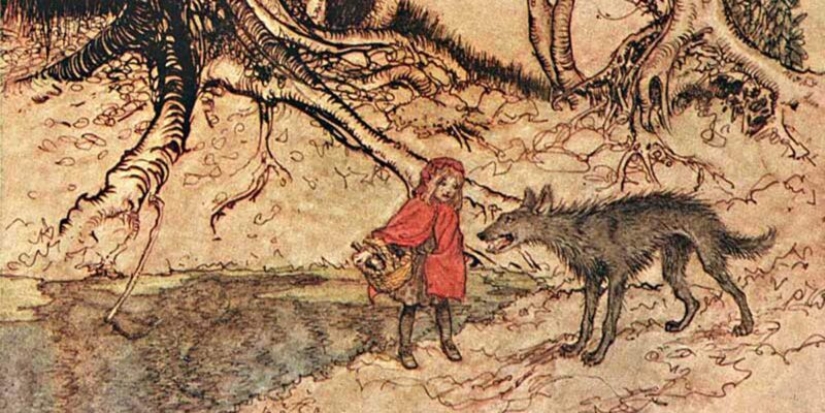
European wolf hysteria is the best contributed to the popularity of folk stories about a girl who on the way to grandma met in the forest a beast. Similar tale, different variations has been spread almost all over Europe since the XIV century, and not in each version as an antagonist figured the wolf.
It passion licantropa coupled with the stories about guys like Garnier and the Handlebar did the trick, forever defining the portrait of the villain.
The first written version of the tales was published in 1697 in France — it was included in the book "tales of mother goose" for the authorship of Charles Perrault. There were tales of Cinderella, Bluebeard, Sleeping beauty, etc. Strictly speaking, the original tales of Perrault was not good. This is a dark and bloody history, the basis for which is partly European folklore, and part of the real history of atrocities. "Red riding Hood" is no exception.
The folklore Foundation for the story Perrault was an oral folk tale "the Grandmother" — the French version of the legend about the girl in the woods. In different versions of this tale, typical of those or other regions of France, the wolf is called "La-Bray", "Liu-Garou", etc. — so in these places has long been called werewolves. In any version of the villain is not a normal wolf.
He first resorted to the house of her grandmother and kills her. More should be absolutely hellish scene — the wolf dismembers the body of the grandmother and cooks him dinner, and her blood fills the bottle of wine. Having done all this, he puts the victim's clothes and he pretends to be grandma.
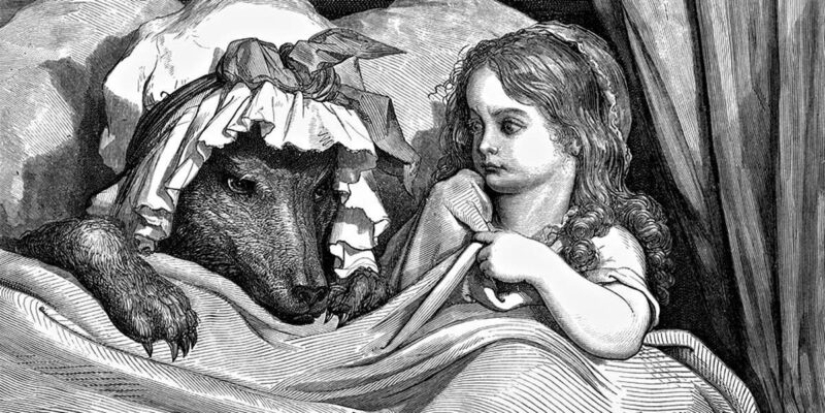
tell: you in the childhood did not seem strange that the wolf, whatever it was a pretender, so easy to impersonate a person? But for a werewolf it's a piece of cake. Then grandmother offers her granddaughter to snack, thereby by deception attaching it to cannibalism, and watered by the blood under the species of wine is a perverted version of communion.
In short, wolf mocks as you can and commit the worst crimes, from the point of view of society and the Church.
In the end, as already noted, the wolf makes the girl undress and go into bed with him, than once again underlines the social status of his victim. However, there are versions of history, in which she managed to understand that before her wolf. Then she waited, undressing slowly and deliberately forcing the wolf to languish in anticipation. When his guard was weak, she ran away from him.
Folklore has always been giperplazirovannom a reflection of the reality in which they lived carriers. In the era of the first serial killers, otozhdestvlyavshey with werewolves, one of them was the main antagonist of the story. The gray Wolf in the original version is a killer and cannibal, as Gilles Garnier. Not accidental was the image of the heroine — that girl at the bottom of society and children was the most easy and favored victims of serial killers.
Keywords: A werewolf | A fairy tale | Middle ages | Killer
Post News ArticleRecent articles

It's high time to admit that this whole hipster idea has gone too far. The concept has become so popular that even restaurants have ...

There is a perception that people only use 10% of their brain potential. But the heroes of our review, apparently, found a way to ...
Related articles

Human history knows two trends: the first is craving for sex and the second — the struggle with sex. Why do so — let him think ...

Kings in all times is called sun and the subjects should have been familiar with his monarch in the face. But there is in history ...

Women's breasts have always inspired poets and artists, driven lovers crazy and made envious women suffer. It was carved out of ...

New Year's is a time to surprise and delight loved ones not only with gifts but also with a unique presentation of the holiday ...